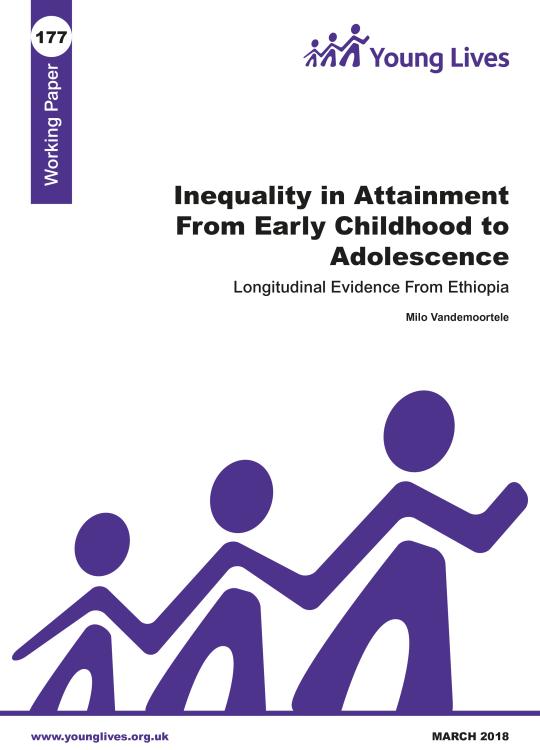
Breadcrumb
Inequality in attainment from early childhood to adolescence: Longitudinal evidence from Ethiopia
As the Ethiopian government moves to increase enrolment in preschool education from 34 per cent in 2013/14 to 80 per cent by 2020, this working paper provides some country-specific evidence on the predictors of preschool attendance and its association to attainment in Ethiopia. Using four rounds of Young Lives data, it examines: who typically attends preschool education; whether children who attend preschool education have higher attainment than children who do not; and how the association between preschool education and attainment evolves over time. Findings indicate that the key predictors of preschool attendance are being a first-born child, male, better nourished, speaking Amharic as a first language, having a more educated caregiver, belonging to a household with higher wealth, living in an urban area, and having a mother who is not employed.
The paper also examines the association between preschool education and children’s attainment, while controlling for a rich array of child-, household- and primary school-level characteristics and variations between communities. Analysis finds that preschool education has a direct and substantial association with attainment, and points to an indirect one through on-time enrolment, grade progression and retention rates (captured in highest grade completed). It also shows that preschool education has a positive and statistically significant role at 5 and 8 years old. Further analysis shows that preschool education has a direct and substantial association with school progression by age 12. These findings indicate that investments in preschool education may doubly pay off – both directly towards attainment and indirectly through exposure to schooling.
For comments and correspondence, please email: m.vandemoortele@lse.ac.uk

